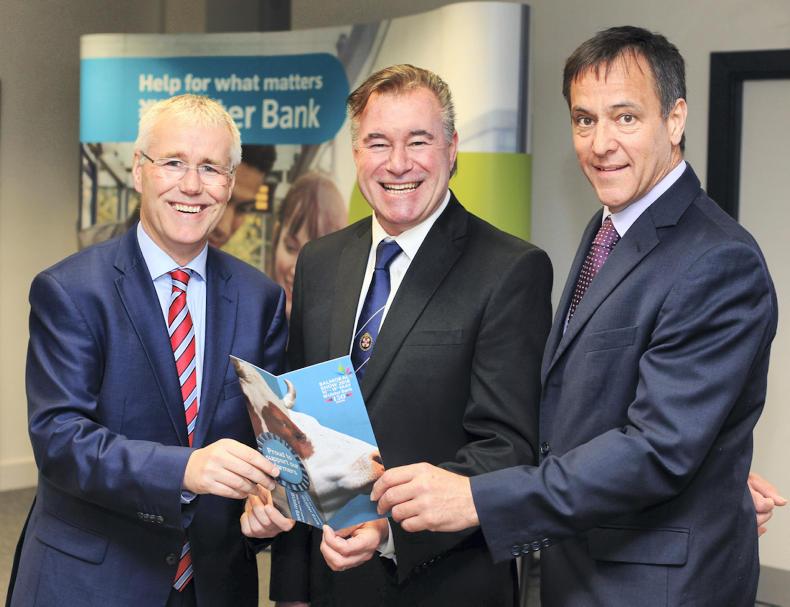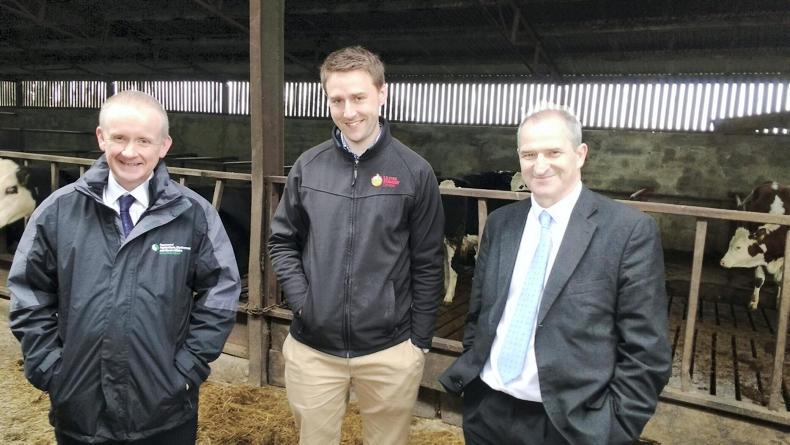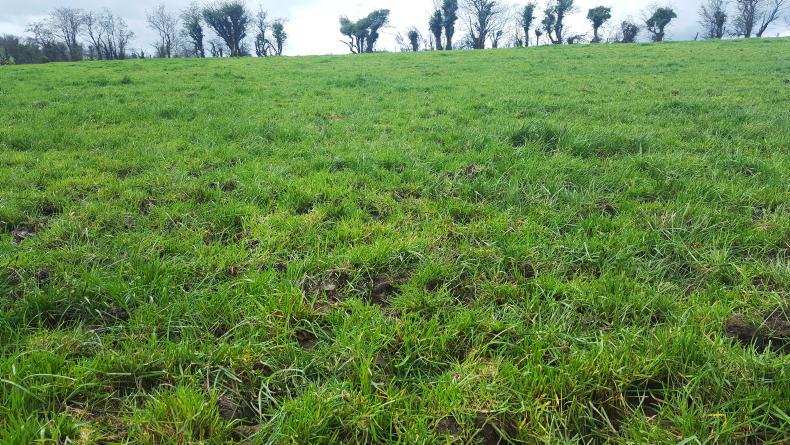The boost to farm incomes which stemmed from the weakening of sterling after the Brexit vote in June 2016 has potentially obscured farmers’ view of the reality that lies ahead, the president of the Ulster Farmers’ Union (UFU), Barclay Bell, has warned.
“There is big change coming, but I don’t think that message has hit home yet,” he told an Ulster Bank breakfast event in Belfast on Wednesday. He believes many farmers are yet to appreciate that there will be significant changes to support payments once the UK moves away from the EU’s CAP system. “Hopefully it [support payments] will still be there, but it will be delivered in a very different way,” he said.
Weakening of sterling against the euro following the referendum result boosted EU direct payments to NI farmers in sterling terms and allowed NI exports to be more competitive, which helped farmgate prices.
That led to a jump in total income from farming in NI last year, with the figure increasing by 87% to a record £473m.
“Yes, it’s great while it lasts, but I would be concerned that farmers currently are in a bubble,” Bell said.
Lending
In his address at the event, Ulster Bank senior agriculture manager Cormac McKervey maintained that uncertainty surrounding Brexit was not having a significant effect on the bank’s willingness to lend to farmers.
McKervey said that there is currently “a honeymoon period” as the NI agri-food industry benefits from weaker sterling while trading relationships with EU and third countries remain in place, but he acknowledged that change is coming. “We can’t ignore it, but we can’t react to it until we have something that we can react to,” he said.
On general agricultural lending, McKervey said that farmers were back to borrowing money for investments and were no longer asking for loan restructuring or extra money to bridge cashflow issues. “We couldn’t have said that last year, and certainly not two years ago. Farming is in a good place at present and we have no issues in any sector,” he maintained.
“We are seeing quite a bit of land coming on to the market and it is being heavily competed for, mostly by farmers. It is a good sign that they are keen to buy it,” he said.
Dairy
In the dairy sector, McKervey said that improved milk prices had not brought a major increase in the number of farmers borrowing money to expand. Instead, money is being borrowed by dairy farmers to invest in labour saving systems, such as robotic parlours or auto ID technologies, and also by new entrants into dairying.
Money is also being borrowed in the pig sector, particularly by finishers working on a contract with larger-scale pig breeders, and in the poultry sector with free-range egg producers being Ulster Bank’s main customers at present. Borrowing in the beef sector is limited and is mostly stocking loans by beef finishers to fund cattle purchasing.
Read more
Banks offering farmers support to ease pressure of fodder crisis
The boost to farm incomes which stemmed from the weakening of sterling after the Brexit vote in June 2016 has potentially obscured farmers’ view of the reality that lies ahead, the president of the Ulster Farmers’ Union (UFU), Barclay Bell, has warned.
“There is big change coming, but I don’t think that message has hit home yet,” he told an Ulster Bank breakfast event in Belfast on Wednesday. He believes many farmers are yet to appreciate that there will be significant changes to support payments once the UK moves away from the EU’s CAP system. “Hopefully it [support payments] will still be there, but it will be delivered in a very different way,” he said.
Weakening of sterling against the euro following the referendum result boosted EU direct payments to NI farmers in sterling terms and allowed NI exports to be more competitive, which helped farmgate prices.
That led to a jump in total income from farming in NI last year, with the figure increasing by 87% to a record £473m.
“Yes, it’s great while it lasts, but I would be concerned that farmers currently are in a bubble,” Bell said.
Lending
In his address at the event, Ulster Bank senior agriculture manager Cormac McKervey maintained that uncertainty surrounding Brexit was not having a significant effect on the bank’s willingness to lend to farmers.
McKervey said that there is currently “a honeymoon period” as the NI agri-food industry benefits from weaker sterling while trading relationships with EU and third countries remain in place, but he acknowledged that change is coming. “We can’t ignore it, but we can’t react to it until we have something that we can react to,” he said.
On general agricultural lending, McKervey said that farmers were back to borrowing money for investments and were no longer asking for loan restructuring or extra money to bridge cashflow issues. “We couldn’t have said that last year, and certainly not two years ago. Farming is in a good place at present and we have no issues in any sector,” he maintained.
“We are seeing quite a bit of land coming on to the market and it is being heavily competed for, mostly by farmers. It is a good sign that they are keen to buy it,” he said.
Dairy
In the dairy sector, McKervey said that improved milk prices had not brought a major increase in the number of farmers borrowing money to expand. Instead, money is being borrowed by dairy farmers to invest in labour saving systems, such as robotic parlours or auto ID technologies, and also by new entrants into dairying.
Money is also being borrowed in the pig sector, particularly by finishers working on a contract with larger-scale pig breeders, and in the poultry sector with free-range egg producers being Ulster Bank’s main customers at present. Borrowing in the beef sector is limited and is mostly stocking loans by beef finishers to fund cattle purchasing.
Read more
Banks offering farmers support to ease pressure of fodder crisis










SHARING OPTIONS